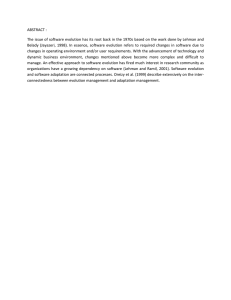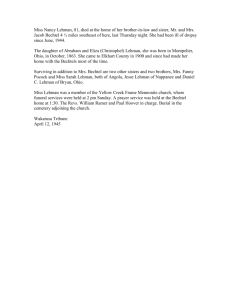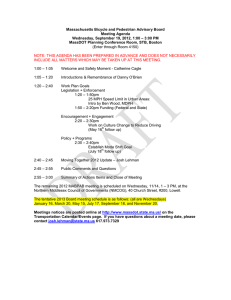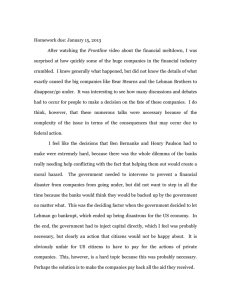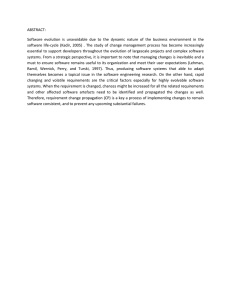MEMORANDUM FOR THE RECORD – MFR
advertisement
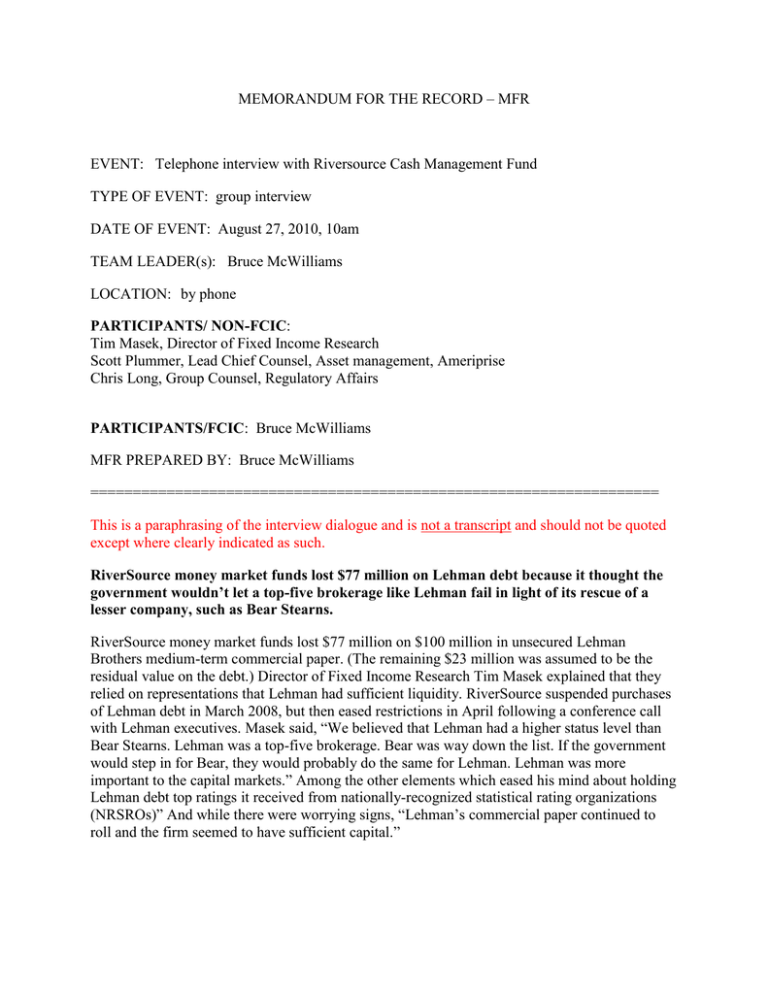
MEMORANDUM FOR THE RECORD – MFR EVENT: Telephone interview with Riversource Cash Management Fund TYPE OF EVENT: group interview DATE OF EVENT: August 27, 2010, 10am TEAM LEADER(s): Bruce McWilliams LOCATION: by phone PARTICIPANTS/ NON-FCIC: Tim Masek, Director of Fixed Income Research Scott Plummer, Lead Chief Counsel, Asset management, Ameriprise Chris Long, Group Counsel, Regulatory Affairs PARTICIPANTS/FCIC: Bruce McWilliams MFR PREPARED BY: Bruce McWilliams =================================================================== This is a paraphrasing of the interview dialogue and is not a transcript and should not be quoted except where clearly indicated as such. RiverSource money market funds lost $77 million on Lehman debt because it thought the government wouldn’t let a top-five brokerage like Lehman fail in light of its rescue of a lesser company, such as Bear Stearns. RiverSource money market funds lost $77 million on $100 million in unsecured Lehman Brothers medium-term commercial paper. (The remaining $23 million was assumed to be the residual value on the debt.) Director of Fixed Income Research Tim Masek explained that they relied on representations that Lehman had sufficient liquidity. RiverSource suspended purchases of Lehman debt in March 2008, but then eased restrictions in April following a conference call with Lehman executives. Masek said, “We believed that Lehman had a higher status level than Bear Stearns. Lehman was a top-five brokerage. Bear was way down the list. If the government would step in for Bear, they would probably do the same for Lehman. Lehman was more important to the capital markets.” Among the other elements which eased his mind about holding Lehman debt top ratings it received from nationally-recognized statistical rating organizations (NRSROs)” And while there were worrying signs, “Lehman’s commercial paper continued to roll and the firm seemed to have sufficient capital.” The purpose of the call was to confirm Riversource’s holdings of Lehman Brothers debt, the support required by the parent company, and the thinking surrounding holding Lehman Brothers debt. Details of conversation: Riversource held $100 million (par value) in Lehman Brother debt in money market and other funds. Of this, $40 million was in the Riversource cash management fund, $10 million was in the Riversoure Variable Portfolio (VP) cash management fund, and $50 million in the Cash Pool fund, which was a 2A-7 fund available for use by other funds at Riversource. Ameriprise Financial, the parent company contributed $77 million to the money market and cash pool fund. The remaining $23 million was management’s view of the remaining value of the bonds. What was your thinking about Lehman debt during 2008? “Definitely in 2008, our concerns continued to mount. On March 17, 2008, we suspended debt of all brokerages, including Lehman. On April 25, there were disclosures by Lehman Brother that they has sufficient liquidity. There was a conference call or a conference, where they said they had $19.5 billion of unencumbered cash or assets that could be used to provide liquidity to the firm. We thought Fed and US Government programs were in place to provide liquidity to these firms.” Rule 2A7 regarding money market funds requires debt to be rated by NRSRO in the top category. So we monitored those ratings as well. As the summer wore on, more information leaked about Lehman’s status. By late July, Lehman wrote down its asset backed securities. We saw this as an about face. This was a sudden change in what they were leading us to believe. We immediately lowered our credit rating. But we still felt they had sufficient liquidity. Nevertheless, their commercial paper continued to roll. They seemed to have sufficient capital We believed that Lehman had a higher status level than Bear Stearns. Lehman was a top five brokerage. Bear was way down the list. If the government would step in for Bear, they would probably do the same for Lehman. Lehman was more important to the capital markets. 4832-4034-4071, v. 1
